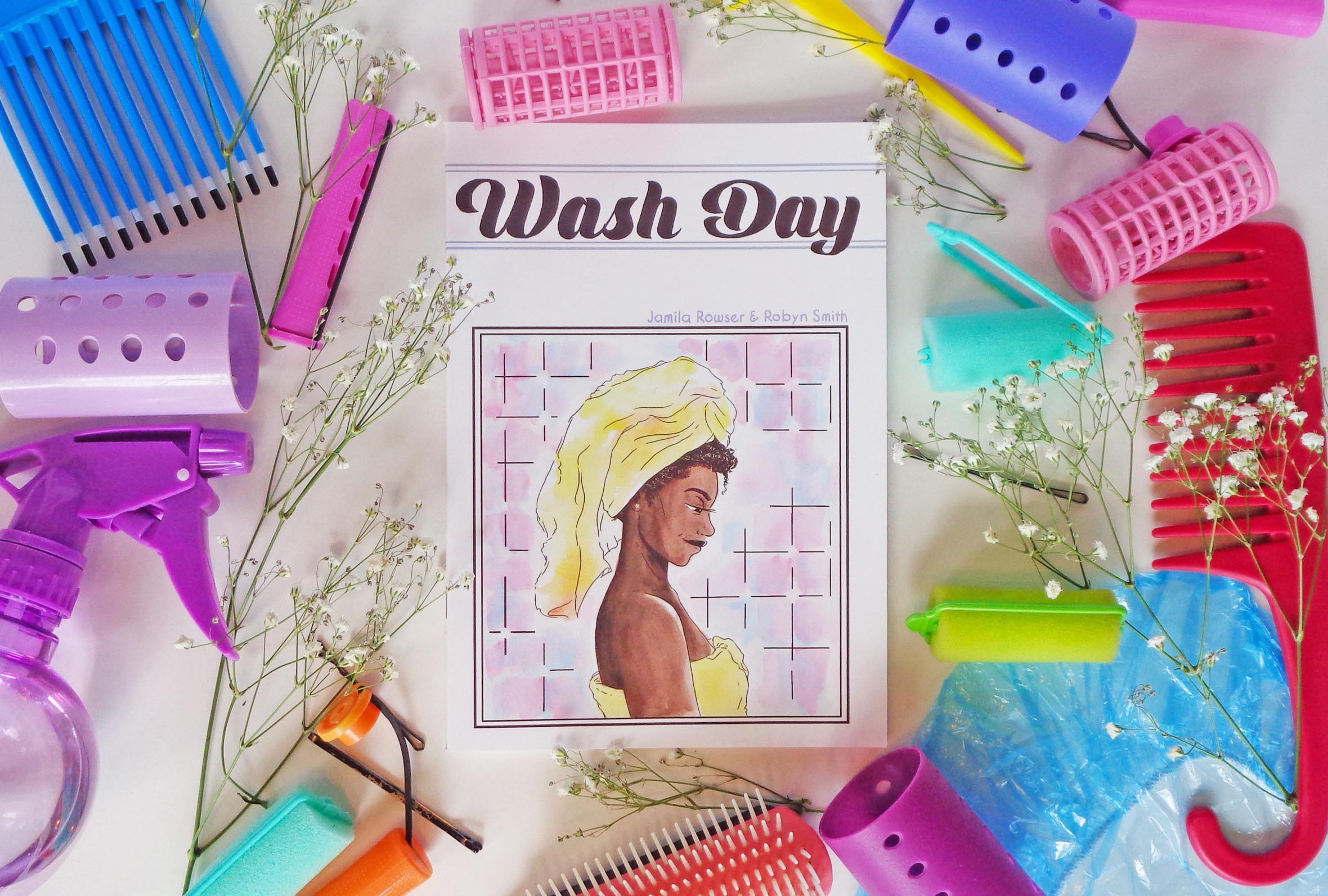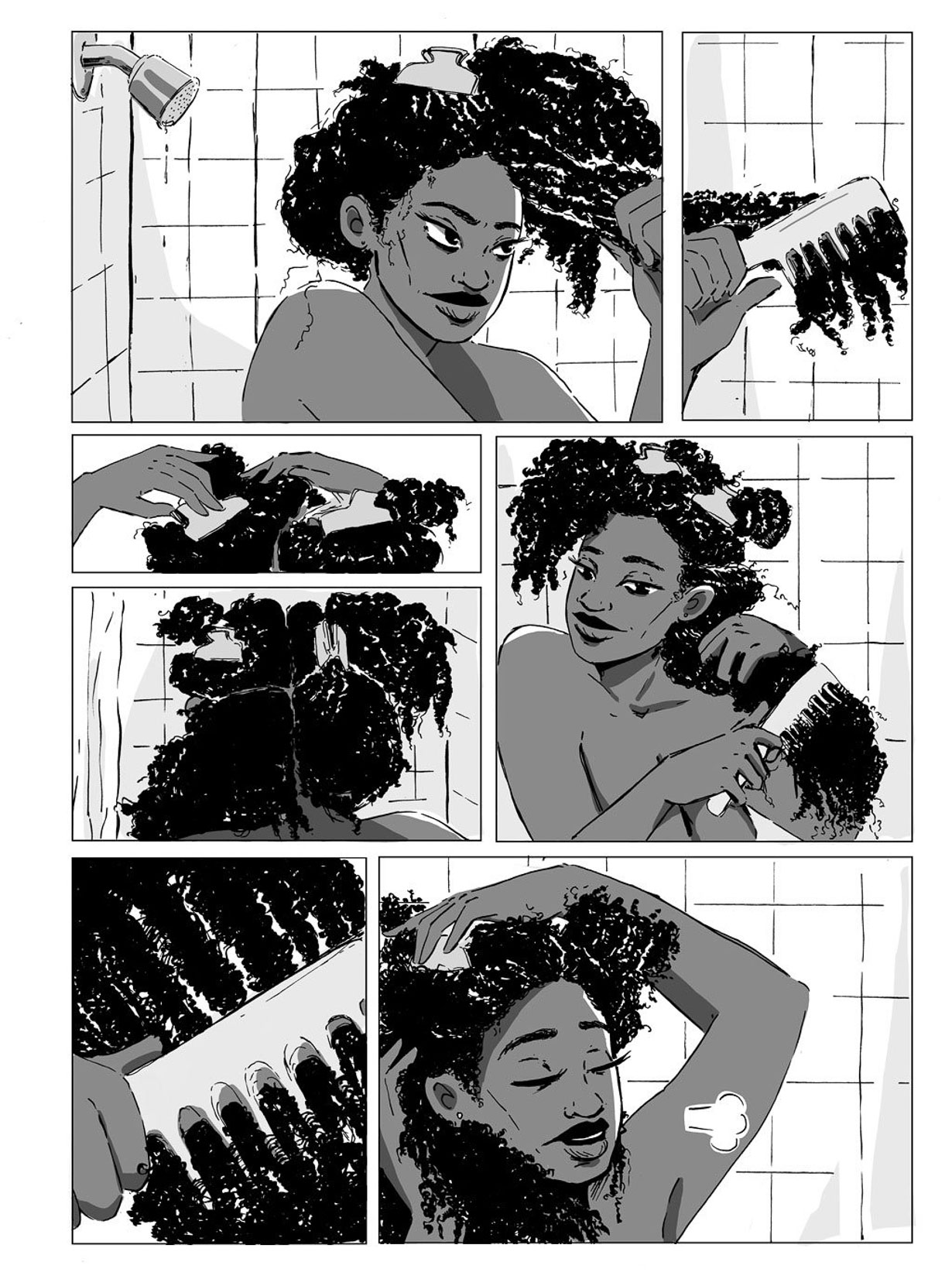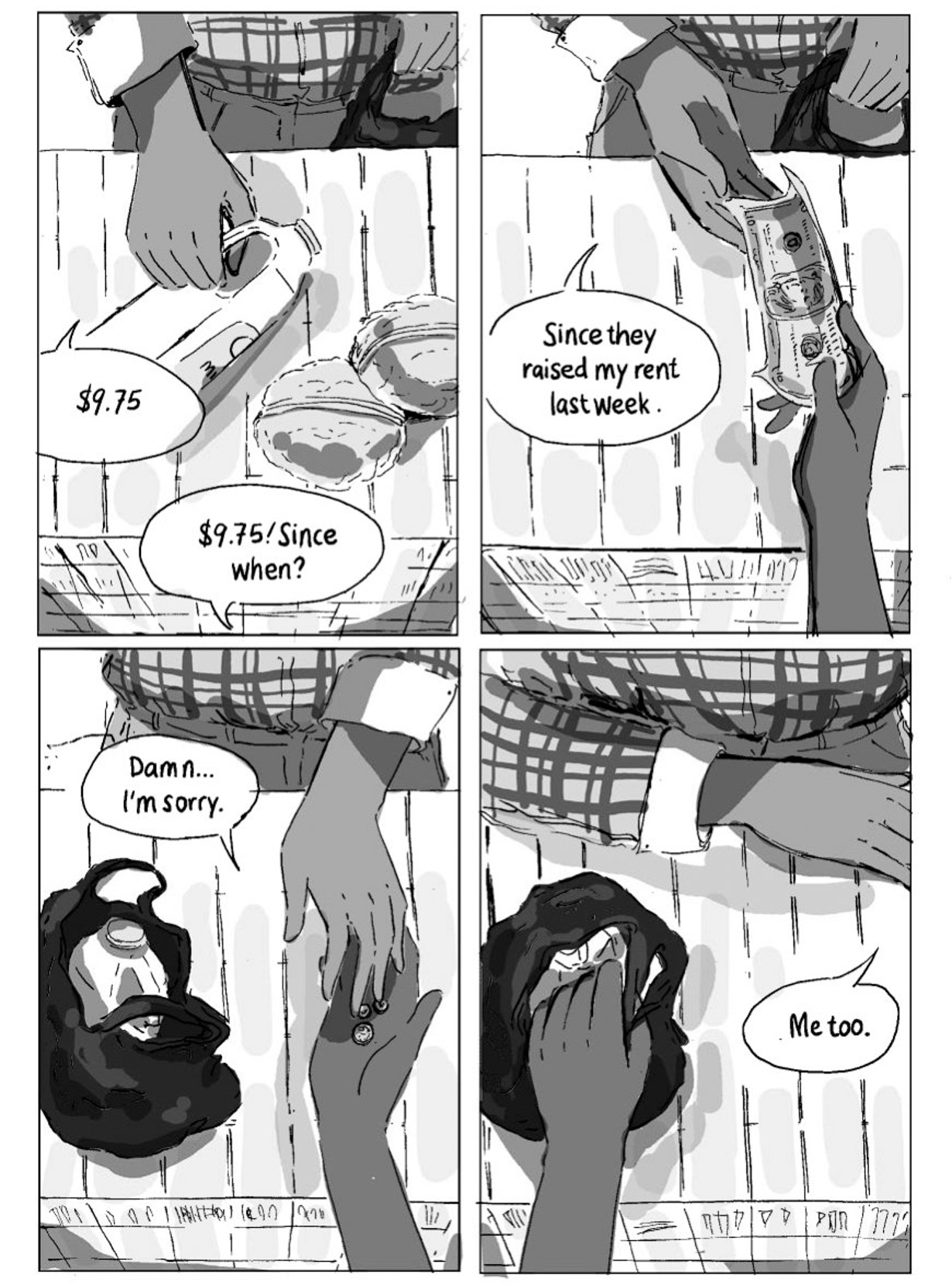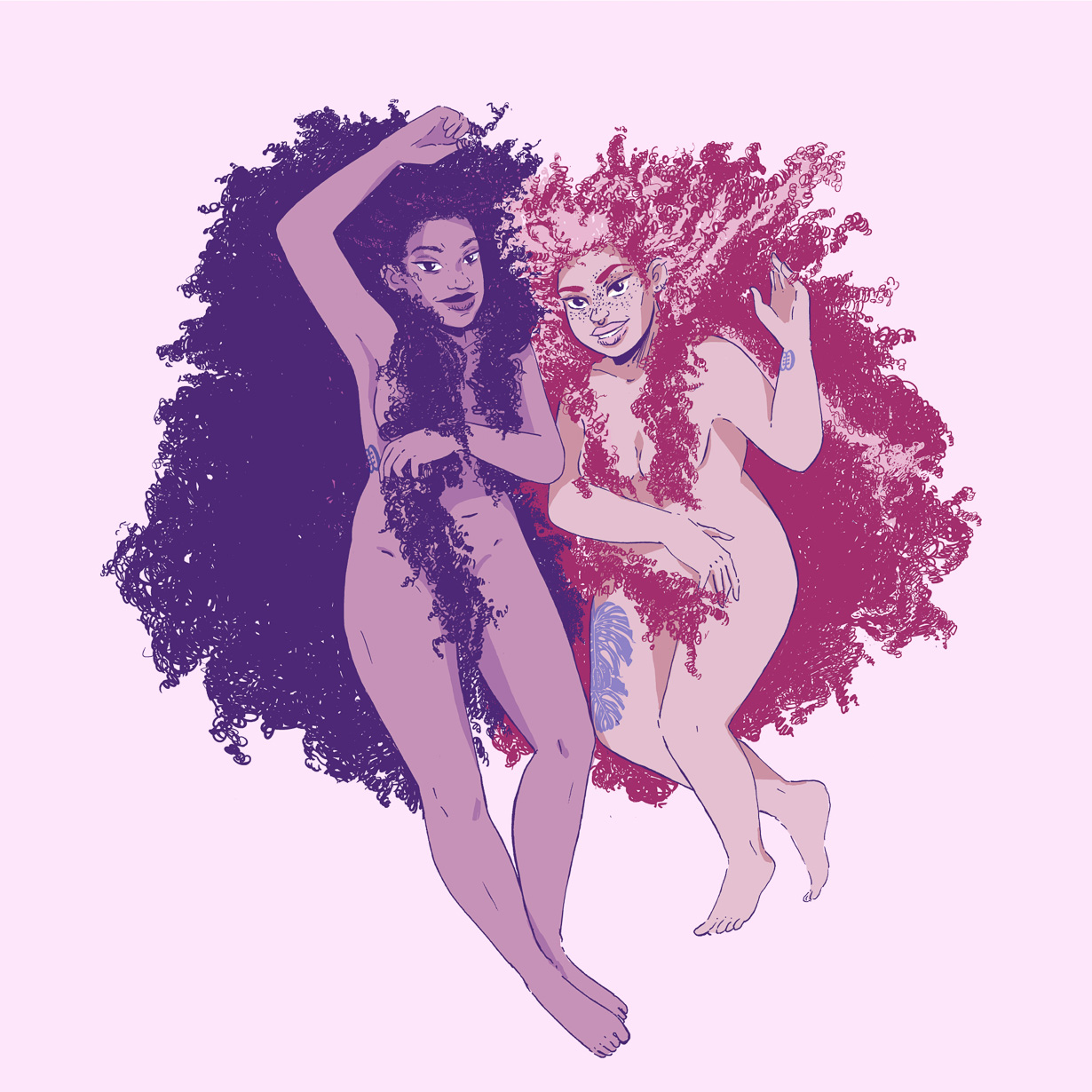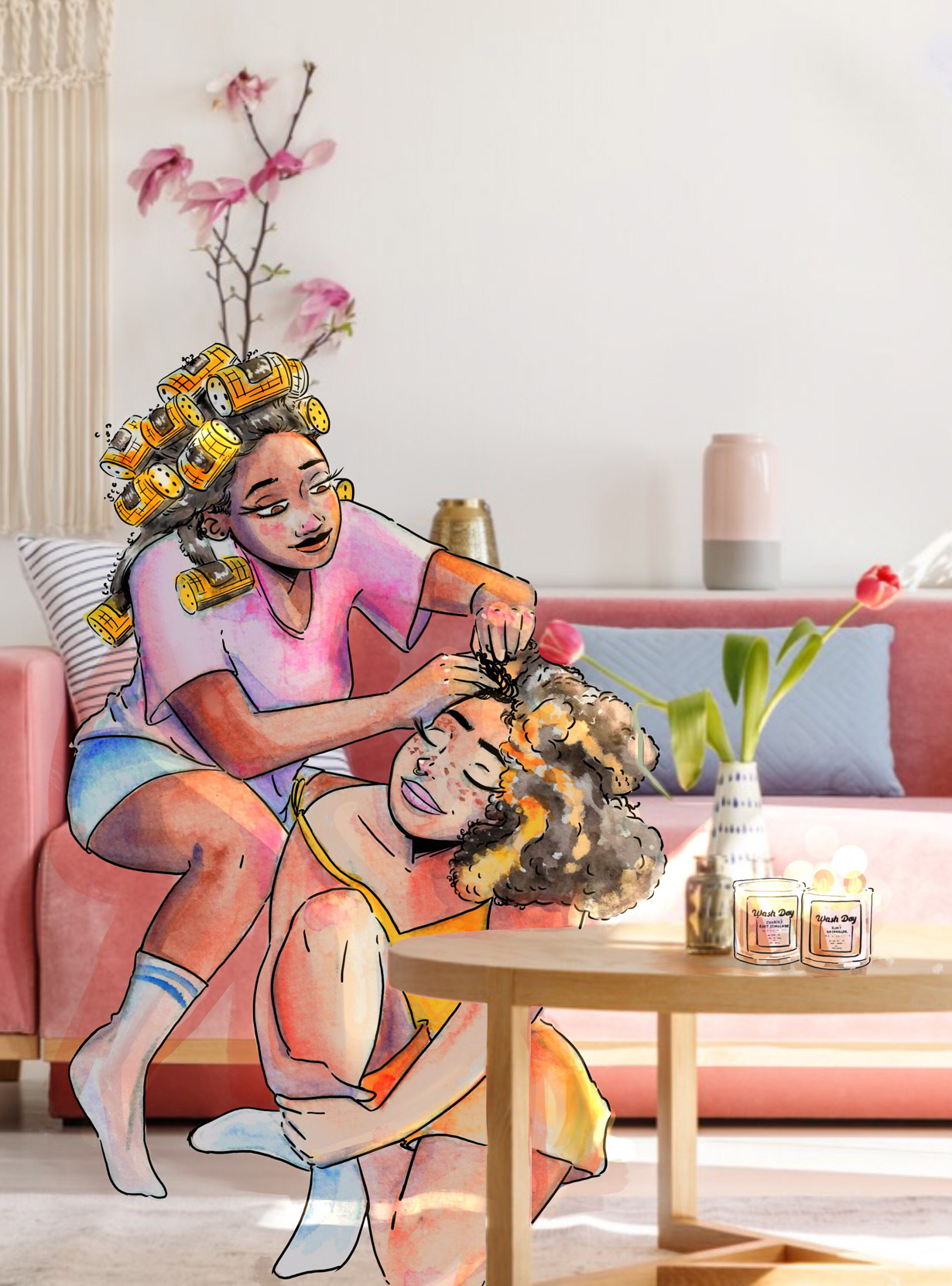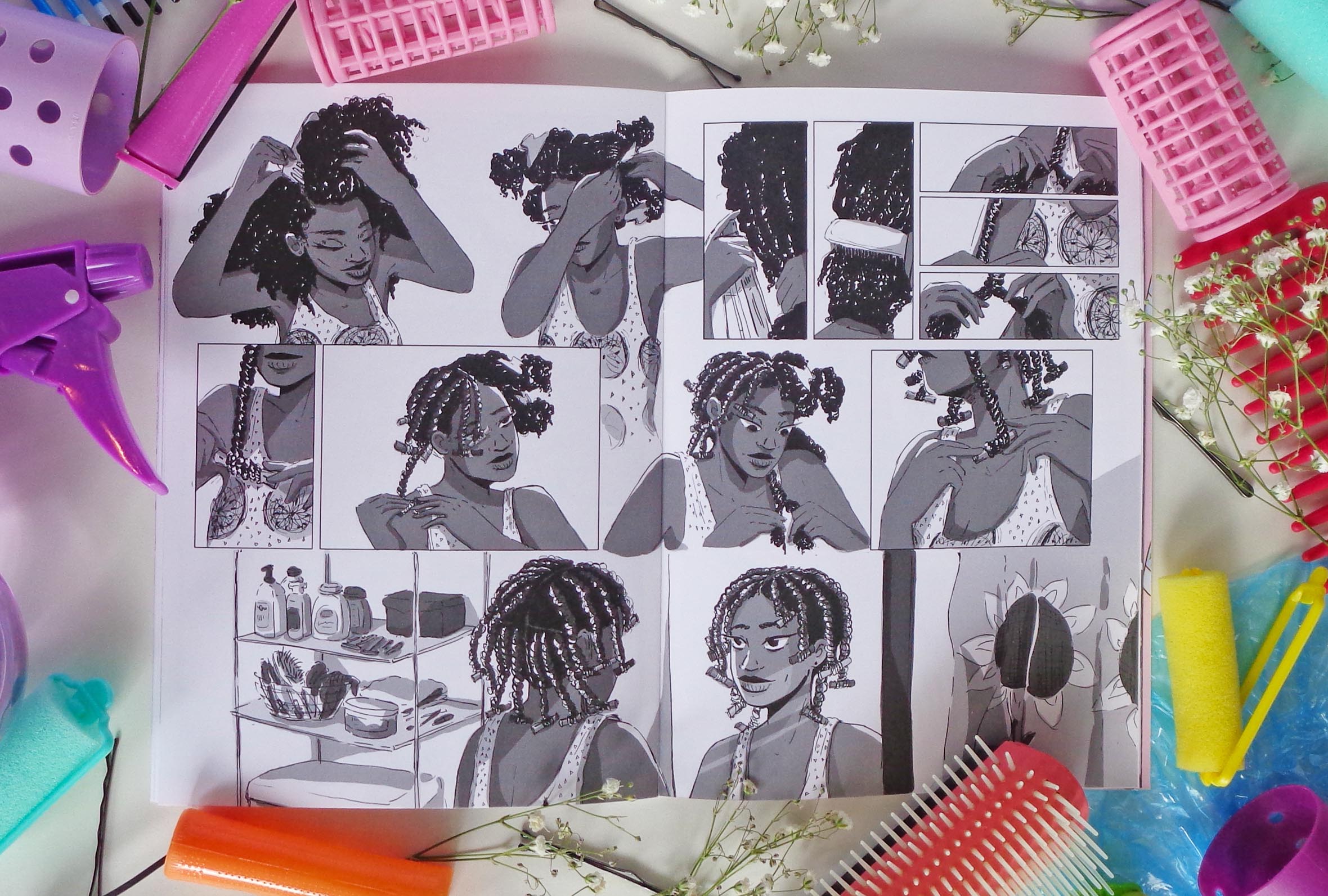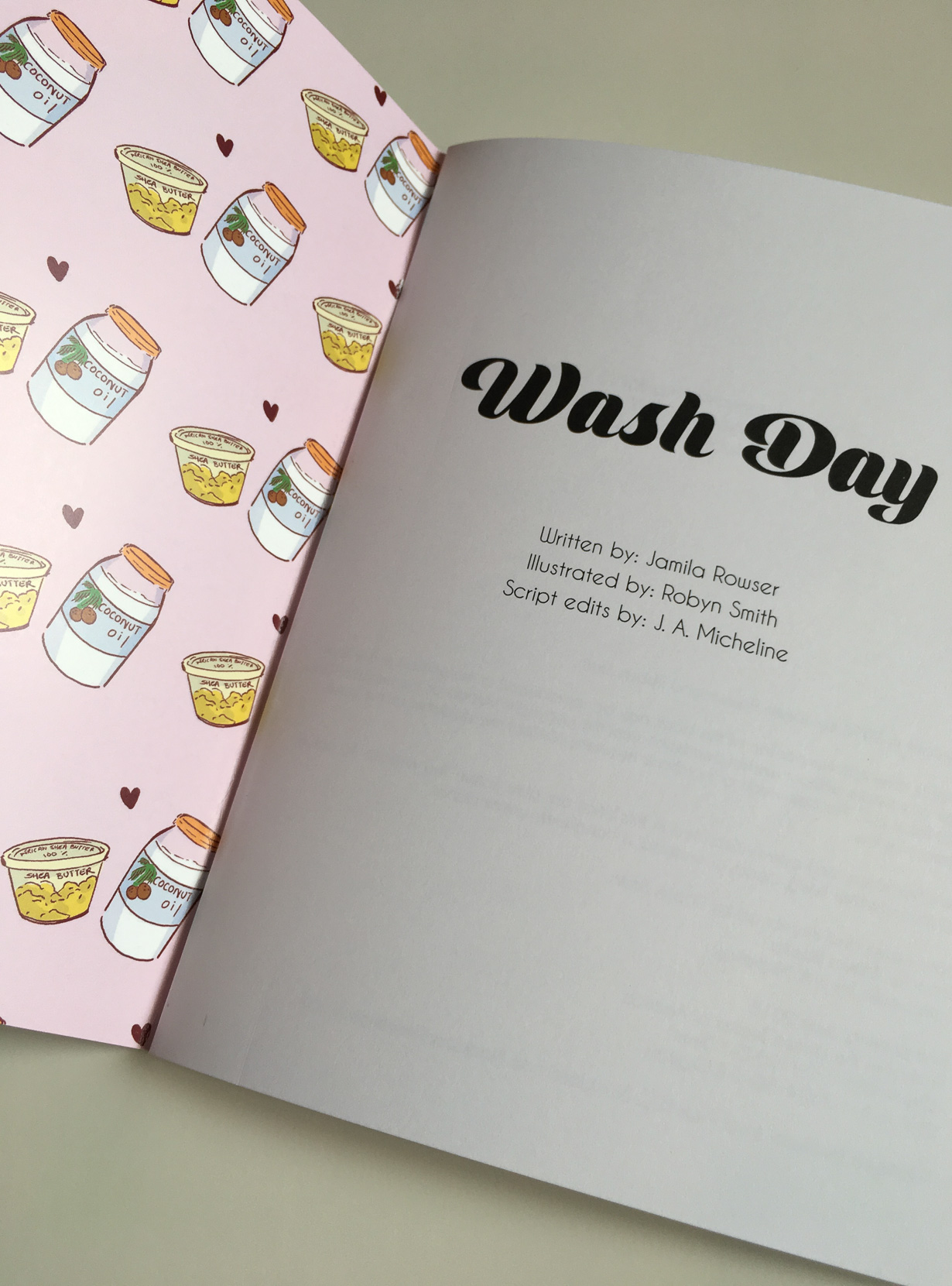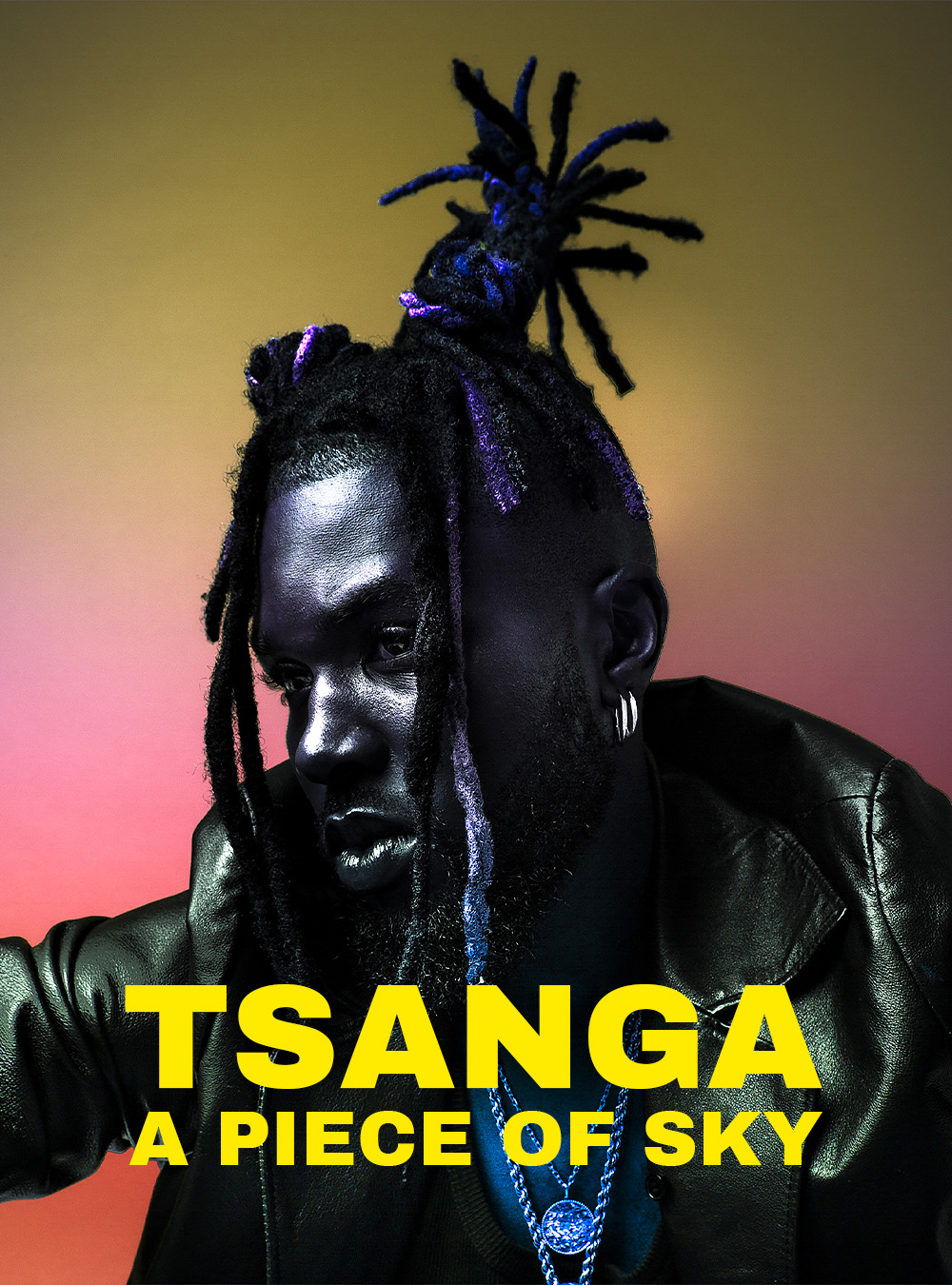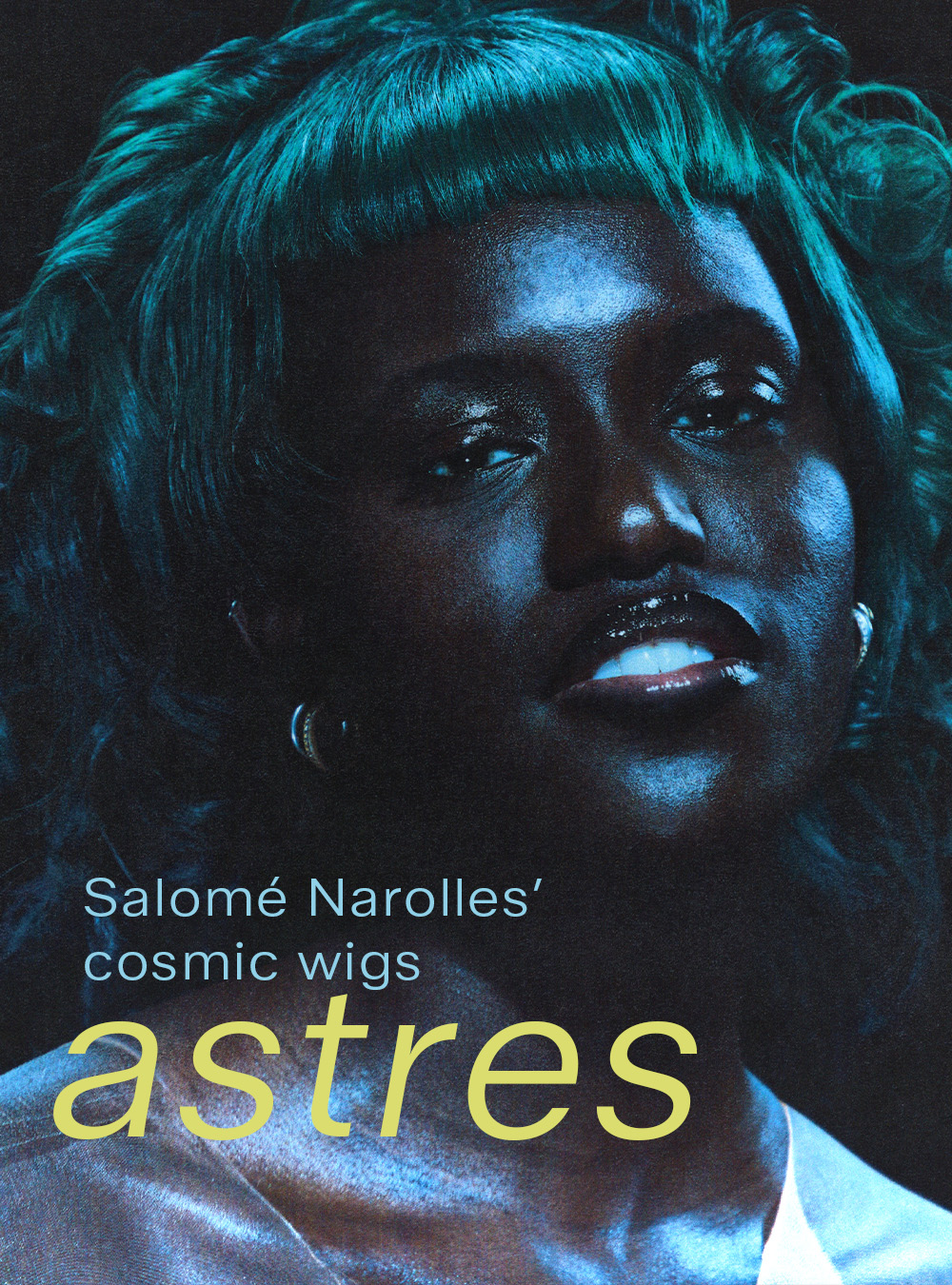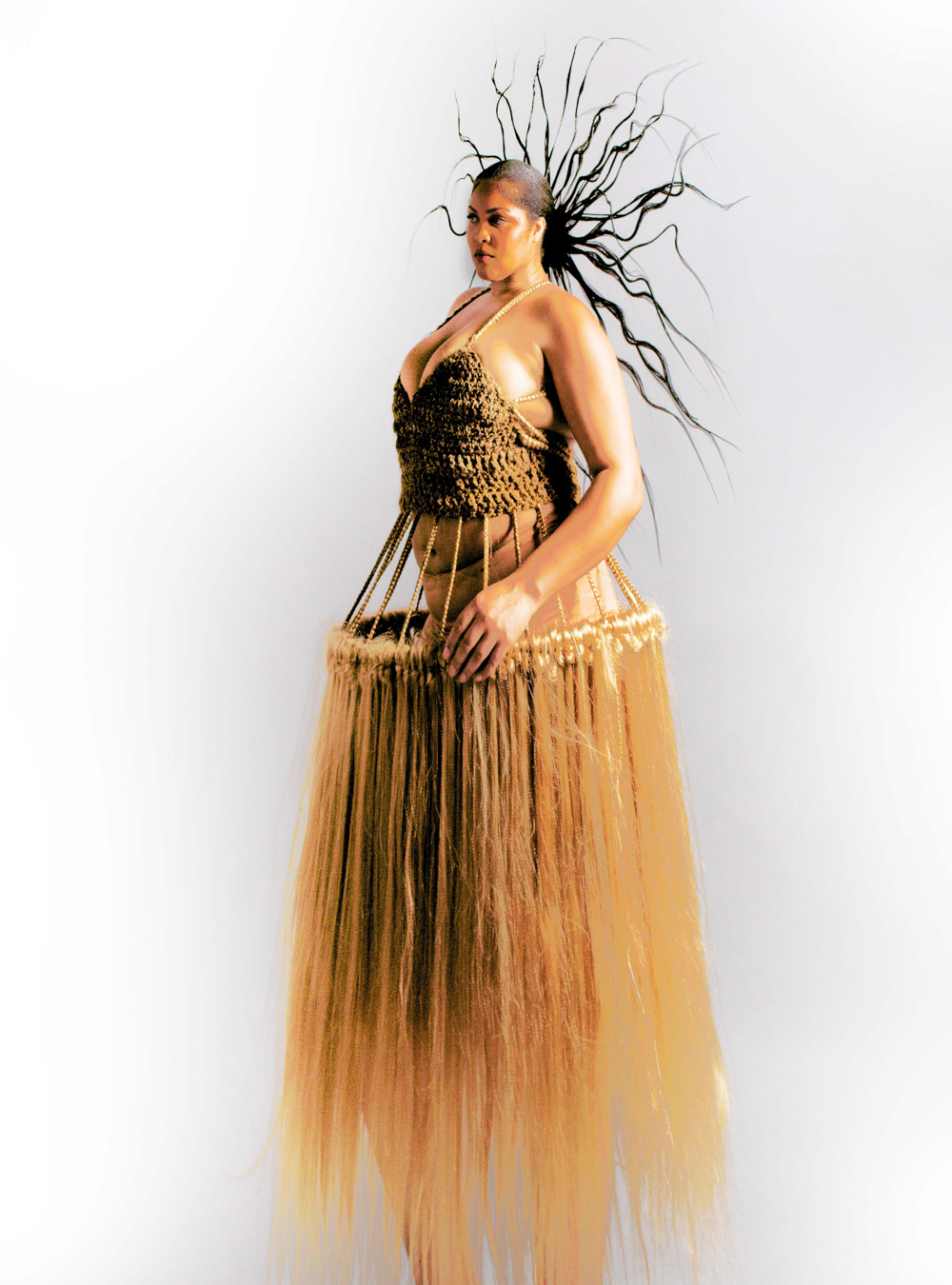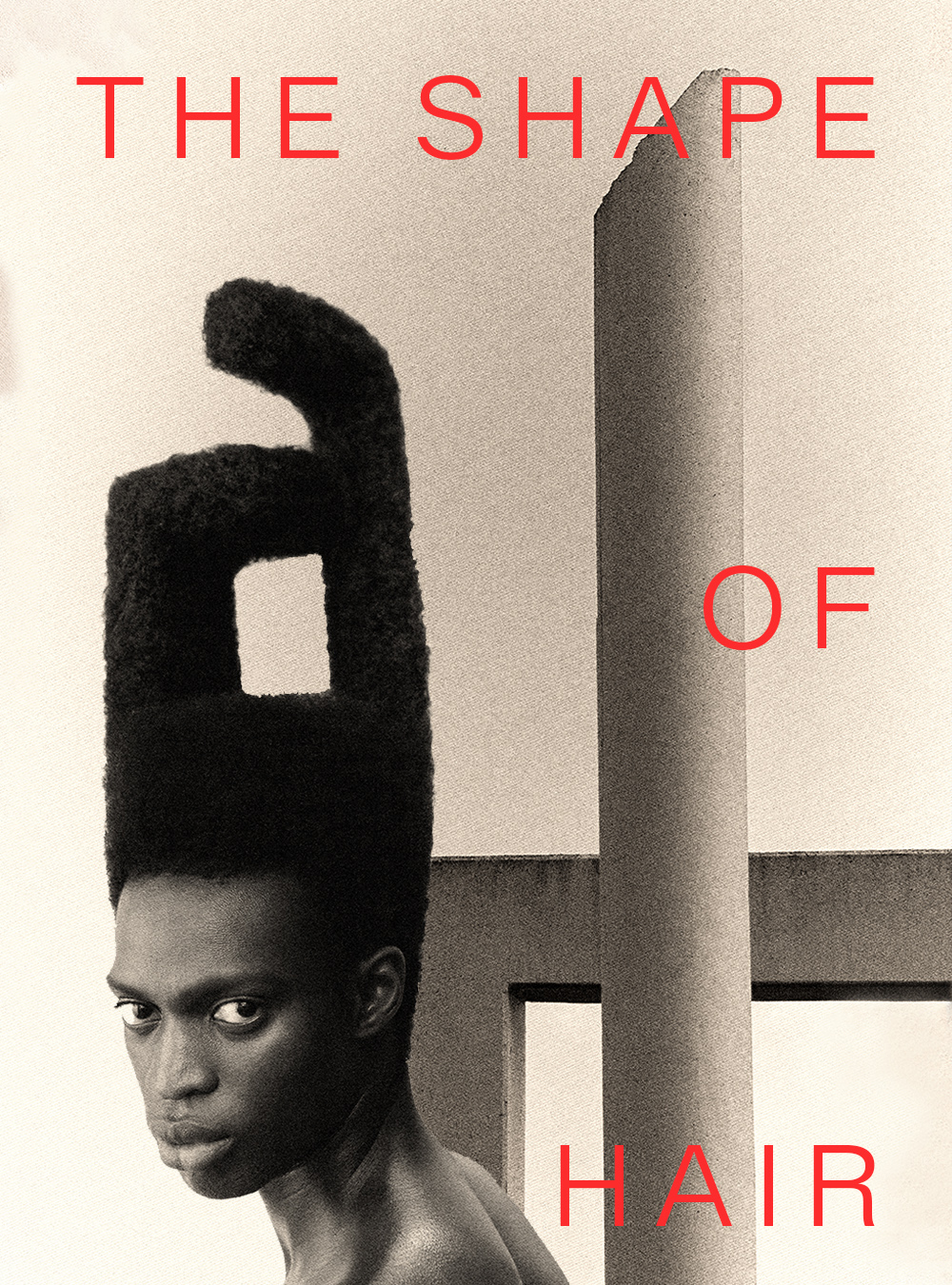ART + CULTURE: Wash Day is a slice-of-life comic written by Jamila Rowser to honour Black women’s beauty and their hair routines
Wash Day written by Jamila Rowser
Illustration: Robyn Smith
Script edit: J.A. Micheline
Interview: Katharina Lina
Jamila Rowser is the author of Wash Day, a mini slice-of-life comic that pays tribute to Black women and their hair. Illustrated by Robyn Smith and script-edited by J.A.Micheline, the story follows Kimana, a young woman from the Bronx, as she goes about her day and cares for her thick locks. Rowser, whose day job is being a community manager at a software company in Miami, started by successfully running a Kickstarter campaign to fund and develop the project, which then went on to win a Dinky Award this year.
How and when did you make the decision to write this comic? I’d been thinking about writing comics for about over a year before I started writing Wash Day. I really love comics and as I continued to read them, specifically Josei manga (Japanese comics for adult women), the more I wanted to see my friends and I in those kinds of stories. Stories like romantic dramas, slice-of-life.That desire turned into me thinking of story ideas for comics. But it took me a while to get the courage to decide to write comics. I had, and still have, bad anxiety, and didn’t think I should or even could write a good story, even though I never tried. Once I fought off those thoughts, I finally decided to write Wash Day. It was my first comic, and I wanted Wash Day to set the stage for the kinds of comics I wanted to create. Comics by and for Black women, where they can see themselves represented authentically.
Can you talk about your experience with seeing representation of women of colour, specifically in geek culture? Growing up, I didn’t see many women of colour in geek culture. Many Black girls can easily name the ones they remember growing up, Storm always being the first to come to mind. As I got older and read more comics, I came across more Black and Brown women characters, but they were still almost always created by white men and token characters. There has been a lot more representation across the board in comics in the last decade, but the bar was low, practically subterranean, and there’s still a lot that needs to be done both on the page and behind the scenes. Especially from major comics publishers.
What does hair mean to you? What is your relationship with hair like? I went through a journey with my hair many other women can relate to; perms, straightening, the works. I thought straight was good and pretty, so I kept damaging my hair to achieve that look. Eventually, I grew to love my natural hair because I began to see more women with natural hair in media. I felt more comfortable with my own.
My ideas about Black women and our hair have evolved as well. The natural hair movement going on now is incredible, but I have seen some negativity and judgement from the natural hair community towards women who permed their hair and wore weaves which isn’t right. I feel like whatever makes you feel good, is good for you. What to do with your hair is a very personal decision and we should be more supportive of all hair types. We treat our hair like a canvas, and I find that beautiful and inspiring, no matter what the outcome.
Who are your hair icons? Honestly, all Black women. I just love seeing how creative and skilled we are when it comes to our hair. Specifically, though, I really enjoy seeing Black hair as art. What Shani Crowe does with hair and braids is incredible.
Was it a part of your mission to create something that sort of acts as a piece of resistance against the stories of women and girls still being punished for wearing natural hairstyles? With Wash Day, I wanted to honour Black women and their hair. I wanted to show them that their hair is beautiful, and that I recognise and see the effort that’s put into it, despite what the world says about it. Robyn Smith, the artist of Wash Day put it best when she said, “There’s something radical about a story of a Black woman taking time for herself and taking care of herself in ways extremely specific to Blackness.”
What is your advice for other WOC creatives who may feel held back by the lack of representation? Don’t wait for permission, or for someone else to represent you in the right way, do it yourself. And don’t underestimate your work, and what it can do for other women of colour as well.
What is next for you? After Wash Day I released my sci-fi twerking tale called Wobbledy 3000, and I wrote a Cowboy Bebop fan comic for the anthology The Real Folks Blues. As for future comics, right now I’m working on a comic for a speculative fiction Latinx anthology called Mañana, that should come out next year. I also just finished a draft of a script about a comic about Black identity that I plan to Kickstart early next year. I have some other exciting things in the works I can’t announce yet, but follow me on social or subscribe to my newsletter to hear about it first.
- ANTHROPOLOGY OF HAIR
- ANTHROPOLOGY OF HAIR
- ANTHROPOLOGY OF HAIR
- ANTHROPOLOGY OF HAIR
- ANTHROPOLOGY OF HAIR
